Do you have an anxious child? You might want to read this...
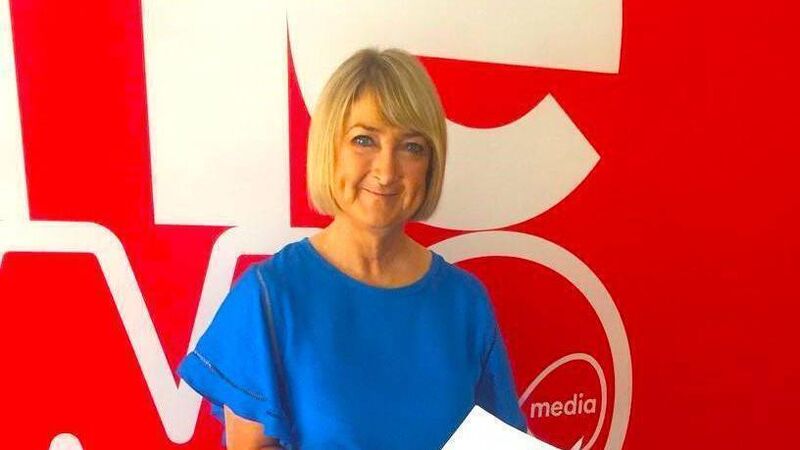
Dr Mary O'Kane, who launched her new book, Anxious Children in an Anxious World.
WHEN was the last time you felt anxious? Yesterday? Last week? A month, or a year ago?
I probably had a couple of anxious moments just this morning already.
If you have any children in your life (whether your own, family members, someone in the class you teach, in your local sports club), do you wonder if they get anxious?
This is why us adults, especially parents and caregivers, need to be aware of how to talk to and help children in an ever more anxiety-inducing world.
According to a new book by Dr Mary O’Kane, titled Anxious Children in an Anxious World: Facing Fears and Finding Brave, and a study from the University of Pennsylvania, levels of anxiety of children in first-world countries have risen from 11% to 20.5% between 2011 and 2021.
“In the UK in 2021, the NHS reported that one in six children in England had reported a mental health difficulty,” Dr Kane reports.
Post-Covid, these statistics are probably unsurprising.
But what statistics in Ireland?
According to an Irish 2022 study by the Ombudsman for Children’s Office, more than one quarter (28%) of the children surveyed said their mental health was not good and that they needed help to manage it. Half of the children stated they sometimes felt low, stressed or anxious.
More girls than boys said that their mental health was not good (60% compared to 31%).
This backs up a growing research body highlighting the plight of anxiety among young girls.
In the absence of any current statistics on anxiety specifically, I contacted the HSE press office asking for the number of children on the CAMHS waiting list. The most recent number (as of January 2024) was 3,828 (down from 4,434 at the end of February 2023).
This number is a snapshot of more severe mental health struggles among people under 18 in Ireland, and not just about anxiety.
The HSE clarified that “CAMHS is a specialist clinical service for people under 18 with moderate to severe mental health difficulties, e.g. moderate to severe anxiety disorders.
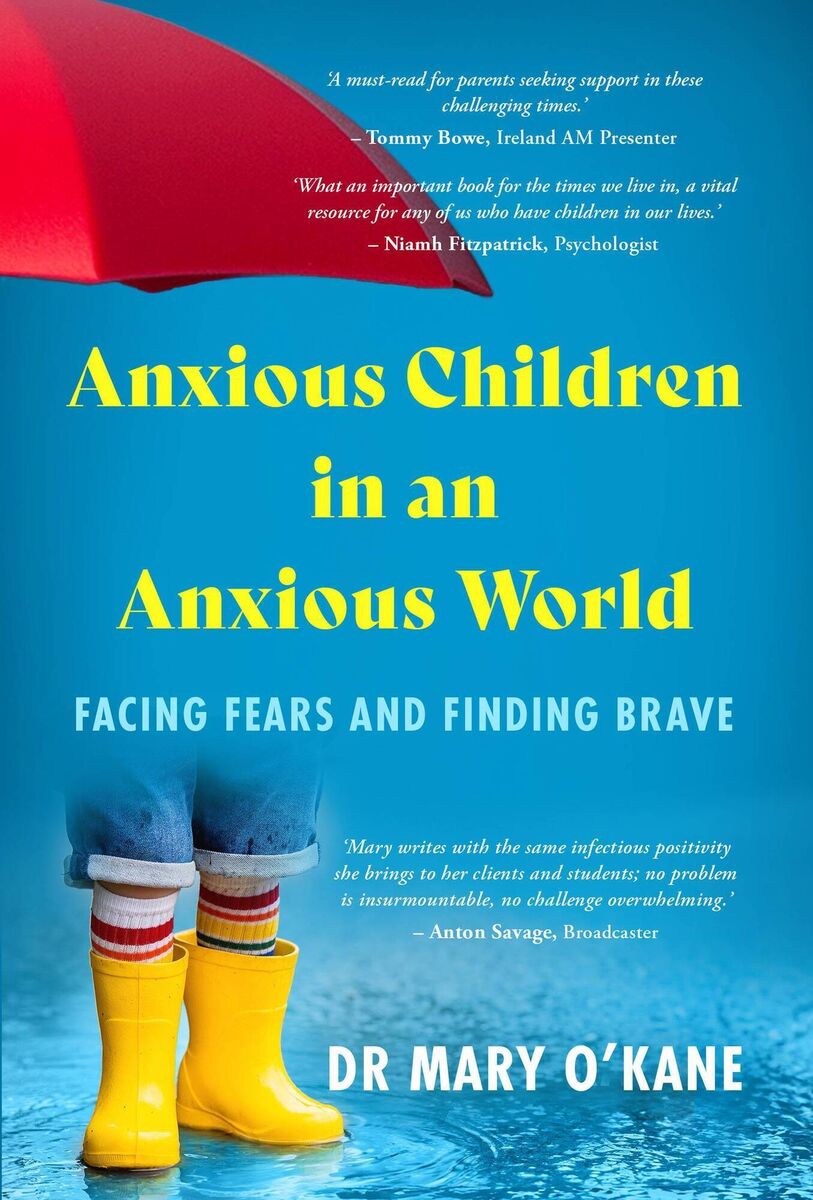
“It is not for everyone; only a small percentage (approximately 2%) of the population would require access to this service.”
Young people with mild to moderate mental health difficulties, including anxiety, can access support at primary care level either through the HSE or through a range of organisations fully or partially funded by the HSE.
However, the high number of children in crisis waiting to be seen is still a part of the bigger picture, and shows just how many Irish children struggle with mental health in 2024, including anxiety (albeit the more severe cases).
Dr O’Kane is a lecturer in Psychology and Early Childhood Education, and has previously published a successful parenting book , Perfectly Imperfect Parenting: Connection not Perfection, and often contributes in the media on parenting-related topics.
I asked her what motivated her to write this very necessary and valuable book, and she movingly told me an incredibly personal reason.
“One of my own children has struggled with anxiety, and I know just how disempowering it can be. It takes power away from the child and it takes power away from the parent. I wanted to write something that would help parents to take some of that power back."
Dr O’Kane’s new book is a great addition to the library of recent books on this topic, and can make a difference in how parents aid their children with handling the emotional rollercoaster caused by anxiety.
Similarly to her last book, her new publication on how to support anxiety struggles in our young people strikes the right balance between facts based on years of research, and practical, easily applicable tips, often drawn from her own experience as a parent as well.
She starts by discussing early brain development and why a child’s secure attachment to their primary caregiver is the first building block to managing anxiety.
After all, children’s life experiences can shape and reshape their neural pathways, she emphasises.
Dr O’Kane said: “Mental health issues, such as anxiety, are often a combination of a genetic predisposition and the impact of environmental factors.”
Your child may be born a little bit nervous, but that doesn’t mean this anxiety has to rule their lives.
Anxiety is an everyday companion in our house, especially since neurodivergent children struggle with anxiety at much higher levels than neurotypical children.
Considering, I am anxious myself (they had to get it from someone, right?), this makes for tricky parenting.
For their benefit, I have to model how to ‘co-regulate’ my emotions and anxiety every day as best I can, even if I personally find this very difficult.
Co-regulation is a buzzword used in early childhood education and parenting at the moment (first coined in 1996 by McCaslin and Good), which refers to the skill to teach children to stay calm in a stressful situation by modelling how to deal with it calmly ourselves.
Dr O’Kane elaborates how passing on this skill is key for healthy childhood development.
By providing steady support to help a child learn to self-regulate their emotions and behaviour, a primary caregiver and how they deal with challenges is crucial for dealing with anxiety.
The author details many different types of anxiety, among which is one that is currently on the rise: school-based anxiety.
This kind of anxiety can range from fairly mild fear in the morning at the prospect of having to face another school day, to much more severe forms, such as so-called school refusal.
Dr O’Kane takes issue with this particular term since it “suggests that the child refuses to go to school”. The cause and effect of school-based anxiety is much more complex, and often describes a range of problems at the root of it all.
It may entail children that have learning difficulties, struggle fitting in, or a child that buckles under the academic pressures of the classroom.
It can relate to anxiety caused by negative experiences in the past, or anxiety leaving their home and primary caregiver (safe space and/or person) behind for a less predictable environment.
One of the best features of Dr O’Kane’s book is how she makes everything relatable by talking about her own parenting dilemmas, and always offers many useful and practical parenting tools.
Here are some easy ways she suggests to help children “find their calm” and cope with all forms of anxiety include:
- Mindfulness techniques, such as controlled breathing or body scans.
- Worry Time: a way of getting young people to release their worries for a limited amount of time to stop them from ruminating the entire day.
- A Coping Toolbox - Gratitude exercises
- A Fear Ladder: a way to overcome anxiety step by step and many more tips that are equally simple to implement.
“It might sound counterintuitive that I wanted to write a positive book about child anxiety, but this is a positive book!” says Dr O’Kane.
“I hope it will make parents realise there is so much they can do to help.”
She feels strongly about reassuring parents that, just because their child struggles, that does not make them a ‘bad’ parent.
“We are not ‘perfect’ parents because our children are doing well, nor are we ‘bad’ parents because our children are struggling.”
For more see https://www.drmaryokane.ie
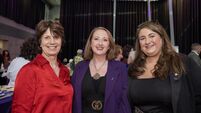
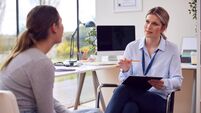
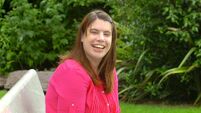
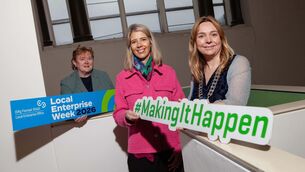



 App?
App?


